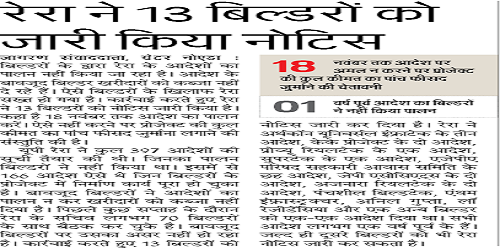The Real Estate (Regulation & Development) Act 2016 has been hailed as a landmark reform measure for the country’s real estate sector in post-independent India. The Act is largely anticipated to change the functional paradigms of the sector in India. However, the efficacies
of the sector seem far from leveraged as a large number of real estate transactions continue to be mired in litigation on account of property ownership disputes. With a view to protecting the interests of home-buyers and lending transparent outcomes to real estate transactions, the implementation of title insurance is the need of the day. There is also a definite need to create a centralised land records database and digitise infrastructure to simplify access to land records.
The concept of title insurance first gained broader attention when a working group was constituted in June 2016 by Insurance Regulatory and Development Authority of India (IRDAI), the country’s insurance regulator-to analyse its effectiveness and legal framework. A kind of indemnity insurance, title insurance acts as a key protection tool against financial loss and damages arising from title deficiencies and frauds in real estate registrations. Unlike conventional insurance product offerings offering security against future losses,title insurance offers retrospective protection to the insured from events which occurred before the policy was issued. Provisions under title insurance extend to impediments arising from title documents on account of defective execution, improper creation and execution and problems of stamping and registrations. It also offers protection from impersonation, forgery, fraud, duress, incompetency and incapacity. The insurance product also covers defects arising in a title on account of a falsified and invalid power of attorney apart from covering losses emerging from failure of persons or entities to authorise a transfer of conveyance. The insurance also extends to covering legal proceedings arising out of title litigations. Though the concept is still in nascent stages in India, it forms a key policy imperative for seamless transfer of land title deeds in the US and Europe real estate sector. India can learn from the experience of USA and other countries while enacting the Law.
A key provision of RERA stipulates that a clearly written affidavit needs to be furnished by a developer stating that the title for the land on which a project is coming up is fully legitimate and supported by legal ownership documents. A written affidavit bearing credence to the fact that the land does not bear any liabilities also needs to be provided by the developer. RERA provisions ensure that title disputes do not result in project delivery delays and interests of home-buyers remain protected. RERA further stipulates that in case of faulty land titles encountered in the course of developing or developed projects, the buyers shall be suitably compensated by the developer.
S. 16 of RERA is futuristic provision settling platform for title insurance product. Lack of clarity in project titles has emerged as a major impediment in speedy progress of real estate projects. The issue has emerged as an overbearing cause of concern for raising objections to real estate deals and stalling their advancement through seemingly unending litigation in courts of law. It is expected that the anticipated roll-out of title insurance in the country will end the spate of needless litigations and create a sustainable roadmap for fast-paced execution of real estate projects.
Clearly executed title deeds have the potential to boost real estate transactions in a transparent manner. Proven legal sanctity of titles will enhance the accountability value of property deals and provide an assurance of risk-free buyouts for prospective homeowners. Along with far-reaching reforms like RERA which has the scope to change the functionalities of the real estate sector, clearly defined title insurance policy parameters can address the risks arising out of faulty land titles. Legally clear land titles also facilitate easy sanction of bank loans for real estate developers. A well-defined title insurance policy can also trigger much-needed investment activity by increasingly attracting Foreign Direct Investment (FDI) in real estate.
This shall certainly improve the market for home loan and loan against property projects. Banking sector as a whole will be benefitted as the collateral in most of the credit facilities is real estate.
This product shall also boost and pave way for digitisation of land and creating provision for online transfer.
Block chain technology will certainly assist the platform required to effectively launch title insurance as a product.
Source From:- http://mydigitalfc.com/editorial/building-future





